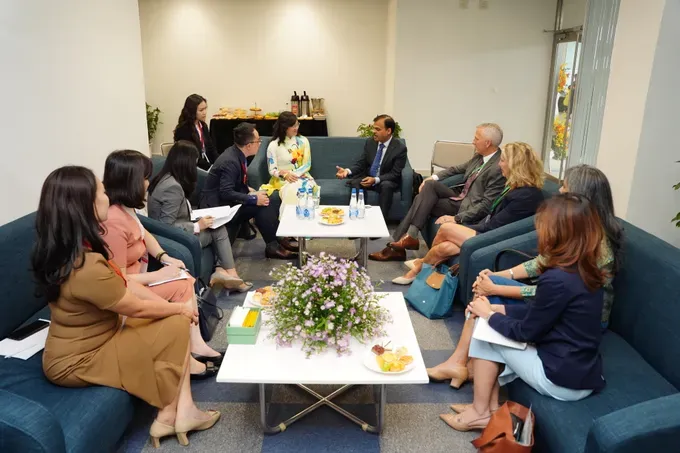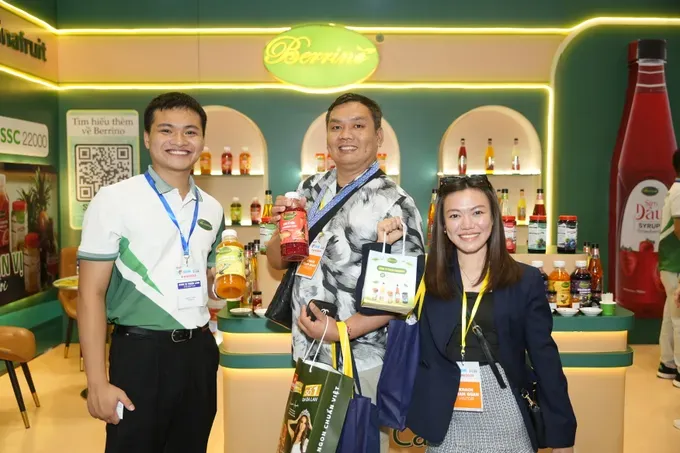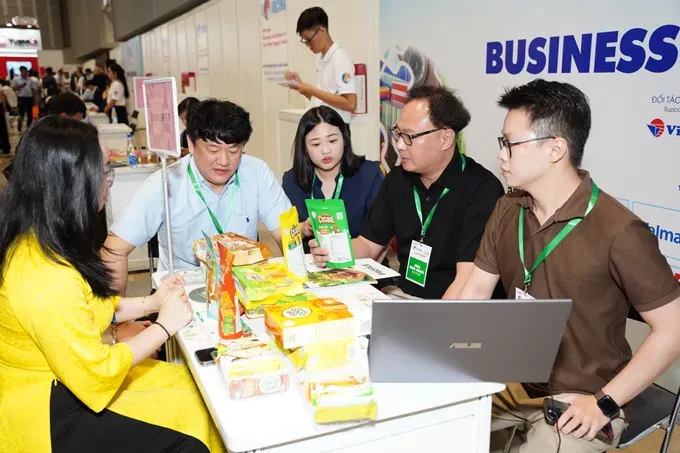Valued at over US$7 trillion today and projected to grow to US$ 10 trillion by 2030, the global Halal market offers substantial opportunities for exporters, including Vietnam, with its competitive advantages in agriculture, seafood, and processed food products.
This information was provided by the Ministry of Industry and Trade at the international seminar, themed “Market Trends and Export Opportunities for Vietnamese Agricultural and Processed Food Products in Halal Markets”, held on September 5 in Ho Chi Minh City.

According to Ms. Nguyen Thi Ngoc Hang, Marketing Director of the Halal Certification Office (HCA Vietnam), Halal is not only a mandatory certification but also a “golden passport” enabling Vietnamese products to access more than 2.2 billion Muslim consumers worldwide.
The Halal certification process requires strict compliance across every stage, from raw materials and production to processing, packaging and distribution.

In recent years, numerous Vietnamese enterprises have invested in modernizing their production processes, adopting international standards and enhancing transparency to meet technical requirements.
As a result, Vietnamese products such as seafood, coffee, rice and processed foods have strengthened their presence in key markets such as Indonesia, Malaysia, the UAE and Saudi Arabia.
According to statistics, bilateral trade between Vietnam and Muslim-majority countries reached US$24.7 billion in 2025, including US$10.9 billion in exports. However, this figure remains relatively modest compared to the enormous scale of the Halal market, indicating substantial growth potential.
Mr. Afriansyah Noor, Vice Chairman of the Indonesian Halal Assurance Agency (BPJPH), stated that Indonesia is the largest Halal market in Southeast Asia, with Halal food expenditure estimated at US$155.3 billion, accounting for over 11 percent of the global market. He noted that Indonesia presents significant opportunities for Vietnamese products thanks to its geographic advantage and competitive logistics costs.
In the Middle East, Halal product demand in the region continues to grow rapidly.

In Saudi Arabia alone, the Halal market is valued at approximately US$60 billion per year, while the country imports 85–95 percent of its food requirements. Products such as seafood, rice, coffee, processed foods and cosmetics are key strengths of Vietnam that have been valued highly suitable for this market.
Ms. Nguyen Thi Hong Hanh from the Vietnam–Arab Cultural Exchange and Trade Promotion Center emphasized that the Halal market is not only an export opportunity but also a condition for Vietnamese products to increase value and build brands aligned with international standards.
The global Halal industry is projected to grow at an annual rate of 5.5 percent through 2030.
To seize this “golden opportunity,” Vietnamese enterprises need to adopt a comprehensive strategy for investment into technology, proactively obtaining Halal certification from reputable organizations, developing specialized human resources and brands emphasizing green, clean and sustainable values.
By implementing a synchronized strategy, Vietnam could establish itself as a trusted source of Halal products worldwide, not only expanding export opportunities but also strengthening its national brand in the global supply network.
























